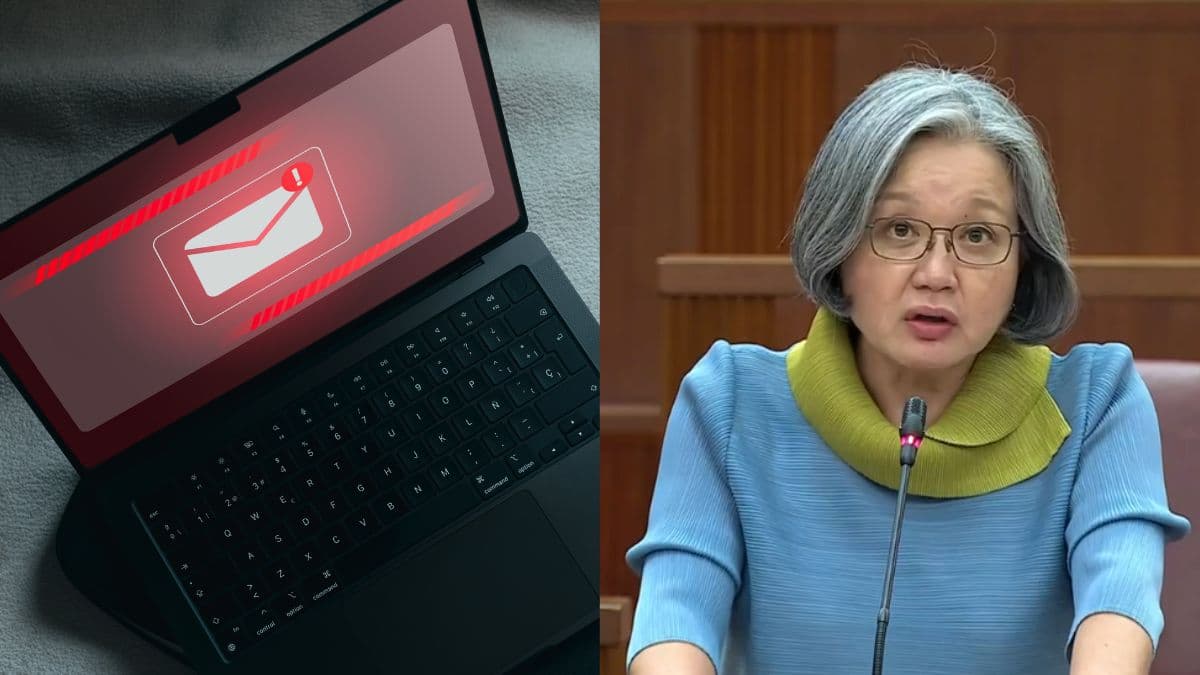Sylvia Lim questions use of caning for scam crimes, urges humane justice and regional cooperation
During Parliament today, MP Sylvia Lim discussed key amendments to 17 criminal statutes, focusing on tackling scams, caning reforms, and a new offence criminalising doxing of public servants. She highlighted the increasing sophistication of scam operations and questioned whether mandatory caning is the most effective deterrent, suggesting alternatives like longer jail terms and higher fines. Ms Lim welcomed the reduction of caning for other offences, including vandalism. Senior Minister of State Sim Ann clarified that doxing laws cover public servants and political office holders, while related persons are determined objectively by courts. She also explained cross-border enforcement measures.

- Sylvia Lim stressed the rise of sophisticated scam operations and questioned whether mandatory caning is the most effective deterrent.
- She welcomed reductions in caning for certain offences, including vandalism, as a move toward a more humane justice system.
- Clarifications were sought on the scope of the new offence protecting public servants and related persons, with cross-border enforcement also discussed.
SINGAPORE: Parliament on 4 November 2025 debated the Criminal Law (Miscellaneous Amendments) Bill, which introducing significant amendments to 17 criminal statutes, with MPs discussing measures to tackle scams, reduce mandatory caning for certain offences, and criminalise the doxing of public servants.
Workers’ Party Chair Sylvia Lim highlighted the persistent threat of scams despite strengthened digital banking safeguards and intensified public education.
Lim, also Member of Parliament (MP) for Aljunied GRC, noted that scammers have become highly sophisticated, tailoring their tactics to target victims, and even coaching them on how to mislead authorities.
The Bill introduces 19 provisions specifically targeting scam offences, including new offences under the Organised Crime Act for members and recruiters of local and international scam groups.
These offences carry heavy fines, prison terms of up to five years, and mandatory caning for at least six strokes.
Lim questioned how effective caning would be in deterring scams and whether alternatives such as longer jail sentences or heavier fines were considered.
She also raised the importance of cross-border enforcement, citing a recent joint operation with Cambodia that resulted in the arrest of 15 suspects, including 12 Singaporeans.
Reforms to Caning for Other Offences
Lim welcomed the Bill’s reduction of mandatory caning for various offences.
Notably, the amendments to the Vandalism Act remove mandatory caning and make it an optional judicial punishment for serious cases.
She emphasised that periodic reviews are necessary to ensure Singapore’s criminal laws remain effective and humane.
Lim urged ongoing reviews of caning offences and broader strategies to disrupt organised scam networks beyond criminal law measures.
Doxing of Public Servants
The Bill introduces a new offence under the Miscellaneous Offences Act criminalising the doxing of public servants and related persons.
Lim sought clarifications on whether political office holders such as ministers and MPs would be covered, the scope of “related persons,” and why illustrative examples were included in explanatory notes rather than the law itself.
Senior Minister of State Sim Ann responded that the offence currently covers public servants and political office holders in the Executive, with MPs under separate review.
Related persons are determined objectively by courts based on their connection to the public servant.
She also clarified that not all cross-border operations fall under Operation Frontier Plus, noting that Cambodia, involved in the September operation, is not a participant, though bilateral cooperation remains possible.







